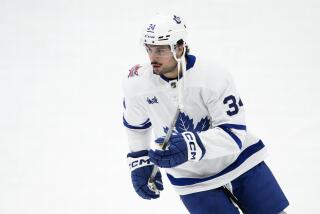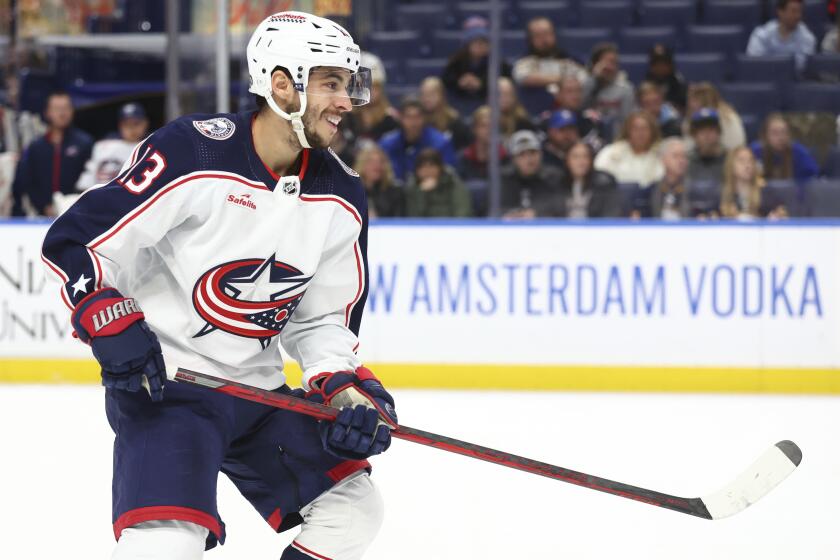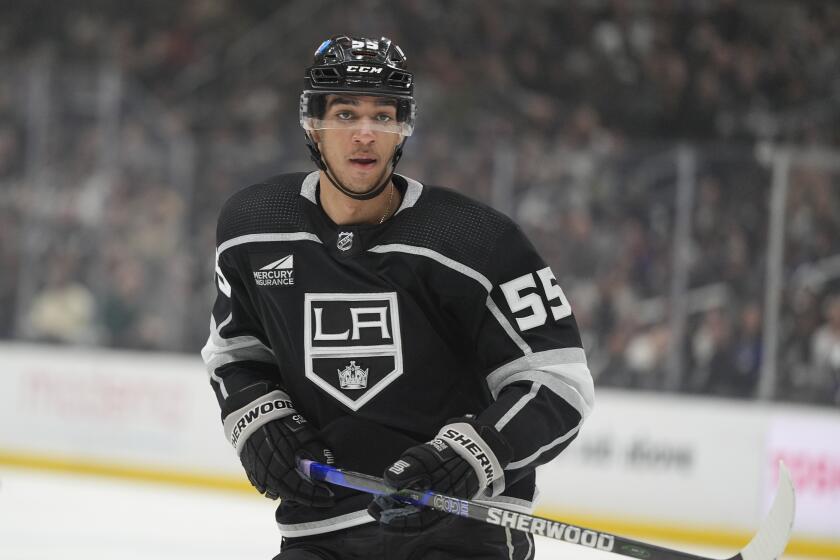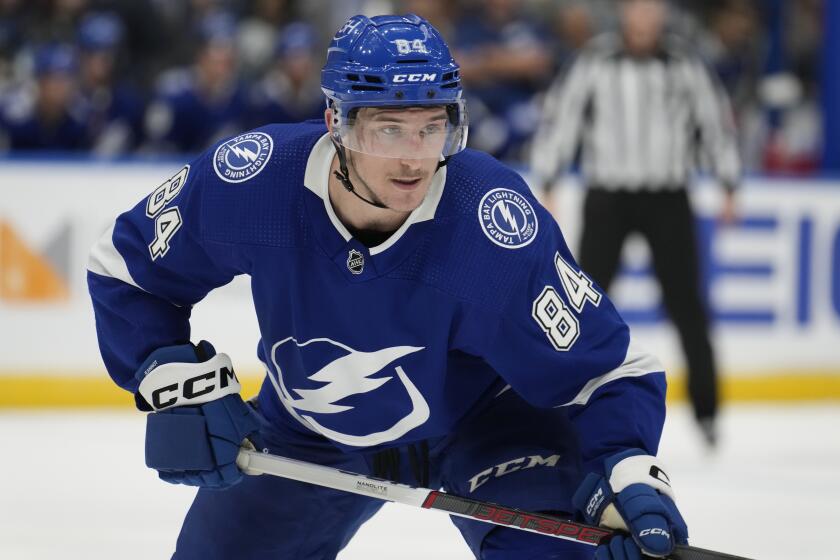Ducks pick it up for the playoffs
In a few days the Ducks have gone from nearly-missed-the-playoffs to placing their skates above the tightening throats of the San Jose Sharks, from playing with fire often enough to torch the penalty box to still playing with fire but quenching their blazes surprisingly well.
The Ducks’ penalty killing ranked 23rd in the NHL at 79.7% this season, one of many areas that suffered while defenseman Francois Beauchemin recovered from knee surgery. It wasn’t for lack of practice -- the Ducks were the second-most penalized team and were short 76 more times than they had an advantage -- but the penalty killers were erratic.
Much like the team as a whole.
Two games and two wins into their playoff series against the Sharks, which resumes tonight at the Honda Center, the Ducks’ penalty killing is 12 for 12. Some of that is because of the composed performances of goaltender Jonas Hiller, but a significant part comes from an awakening of pride among players making amends for a disjointed season.
“I think it’s similar to our game overall in that we thought we were better than what we’d shown,” defenseman Scott Niedermayer said Monday.
“I think we believed that we had guys in here that knew how to kill penalties and could do a good job at it, and throughout the year we didn’t do it very consistently and our percentage wasn’t as good as we would have liked.”
They acknowledge that they’ve had help from the crossbar and goalposts. But that’s new too.
“Little bounces and breaks that can go either way were going against us and right now they’re going for us,” Chris Pronger said. “Pucks are just squirting past their sticks or they’re hitting posts or crossbars. Or they’re just missing the net.”
Those breaks are also coming from a focused effort, from Todd Marchant’s faceoff prowess, Mike Brown’s energy and the shot-blocking sacrifices of Beauchemin and Pronger.
The Sharks were relatively timid around the net in Game 1 but crashed the crease more often in Game 2 and surely will again tonight. The Ducks don’t want to go to the box but don’t want to lose their aggressiveness.
“They have a very potent power play and at some point they’re going to explode, and we want to make sure it’s not against us,” Pronger said.
“You’ve got to be in the right positions and you’ve got to work hard. We’re doing a great job of not allowing them too much time in zone, clearing pucks and making sure we’re getting pucks down 200 feet. Winning faceoffs. Blocking shots. Letting Jonas make the first save and we’re clearing rebounds and not allowing the second and third opportunities that they’re probably going to score on.”
It’s nothing revolutionary, but its effect has galvanized the Ducks. The Sharks’ 79-43 edge in shots includes 25 shots on the power play, all snuffed.
“The way we look at it, and I think the way hockey people perceive it, it’s a poor-man’s job and there’s not a lot of rewards given for penalty killing, but it’s a huge, huge part of your hockey club,” said Ducks Coach Randy Carlyle, who did his share of penalty killing during his playing days.
“If you can kill penalties successfully, you can give yourself a chance in every game, and that’s what it’s about. It’s just as important to prevent a goal as it is to score one in the playoffs.”
Carlyle delegated penalty-killing supervision to assistant coach Dave Farrish, who also killed a few penalties during his NHL career. Farrish said he, too, saw the penalty killers succeed in spurts and wondered why they couldn’t keep it going and avoid a bad week or two that sent their success rate diving.
Adding Brown, Petteri Nokelainen and James Wisniewski gave the Ducks young, fresh legs, although it took a while for them to mesh with veterans Scott and Rob Niedermayer and Marchant.
“I think the bottom line is when you get into the playoffs it’s a little bit of a different story,” Farrish said. “It becomes more a matter of will than anything else.”
With the will, they found their way -- and the wisdom to know the hardest part lies ahead.
“We need to keep it up,” Scott Niedermayer said. “The past doesn’t get you anything next game.”
--
More to Read
Go beyond the scoreboard
Get the latest on L.A.'s teams in the daily Sports Report newsletter.
You may occasionally receive promotional content from the Los Angeles Times.





